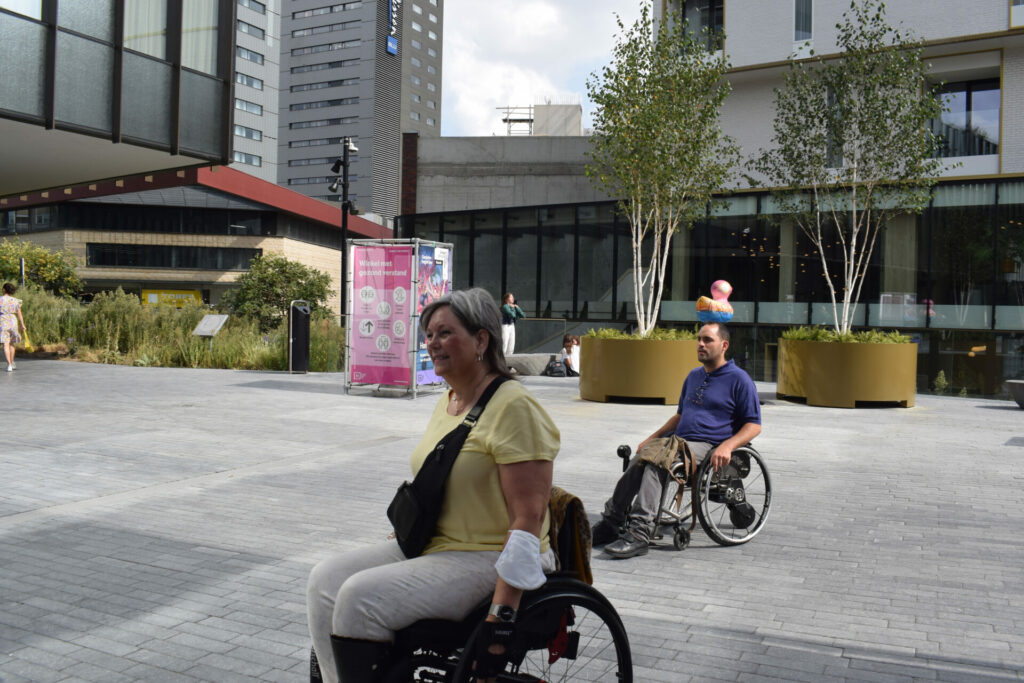Today marks the International Day of Persons with Disabilities, an official United Nations observance marked across the world. The day aims to promote understanding of disability issues and mobilise support for those fighting for the rights and well-being of those with disabilities.
At the European Commission in Brussels, European officials hosted an annual conference in partnership with the European Disability Forum to commemorate the event ahead of the observance, which brought 400 policy-makers and high-level experts together to shine a light on young people with disabilities, as well as tackling violence against those with disabilities.
The EU is committed to improving the rights of persons with disabilities, which is enshrined in EU sustainability goals and inclusion policies. But despite significant progress in recent years, people with disabilities still face challenges in their daily lives, especially in reaching equality with other colleagues.
In Belgium, 6% of the population aged 15-64 experience long-term severe limitations in their daily activities as a result of a disability, a disorder, or an illness, according to statistics from Statbel, Belgium’s statistics agency. According to the data, these disabilities (lasting 6 months or more) are slightly more prevalent in women. Not all disabilities are alike, and they are not always visibly apparent. The term disability encompasses an array of illness, severity, and affliction.
In the group of people experiencing severe long-term limitations, the elderly are the most overrepresented. 58% of those with long-term limitations are 50-64, while they account for just 32% of the total population.
Education
As highlighted by a 23 May report and recommendation issued by the European Commission to Belgium, the learning outcomes for people with disabilities remains a point of concern.
In Belgium, people with disabilities or illnesses have, on average, a lower level of education. 48% have at most a lower secondary education diploma and 14% of them have a higher education diploma. For the total population, these percentages are 23% and 39% respectively.
In Belgium, new approaches are being taken to help people with disabilities achieve the best education possible. In Flanders, the government has greenlighted a Decree on Learning Support, which aims to find the best place to educate every pupil, regardless of disability. Children with disabilities will be integrated into the mainstream education system wherever possible, or specially catered special education as necessary.
More work is needed to increase access to higher education to people with disabilities in Belgium, notably through greater investment and new infrastructure.
Employment
In terms of employment, disability has a clear impact on employment. Only 23% of Belgians with a disability , disorder, or illness are employed, compared to 65% of the population aged 15-64 .
Almost three quarters of those who experienced some sort of limitation to their activities for over half a year are currently economically inactive.
In Brussels, public services have been accused of failing to properly integrate employees with disabilities. A report from the Brussels Parliament concludes that just one public body, the Brussels Government’s Regional Public Service, has met employment targets to employ at least 2% of their staff with people with a disability.
Generally, people with disabilities are finding it easier to find employment in Belgium, but taboo still remains a serious issue. In the last five years, 10% more employees with “work-limiting disabilities” have found a regular job, with a distinct increase in employment in the services sector.
Poverty and social access
Strengthened employment will be an important tool for overcoming another societal problem that people with disabilities often face. A large percentage of Belgians with disabilities remain outside of the workforce, and sometimes parts of the city's infrastructure.
Related News
- Antwerp-based app wants to 'make world bigger' for visually-impaired
- Flanders allocates €45 million to expand special education resources
According to Eurostat’s Survey of Income and Living Conditions 2021, 22% of those with disabilities are at risk of monetary poverty. 17% suffer from severe material and social deprivation and 39% live in rented accommodation, against 27% in the rest of the population.
Disabilities groups are campaigning for improved means for them to live a dignified life in Belgium. The European Network for Independent Living led protest action in Brussels at the end of September, calling for access to “affordable and accessible accommodation” as well as greater support for those who struggle to get a job.
Other initiatives aimed at improving the mobility of those living with disabilities will be crucial to ensuring full social integration. Brussels Metro station will soon become more accessible to people with disabilities and new resolutions will call on Brussels public buildings to remove “barriers” to entry to those with disabilities.

